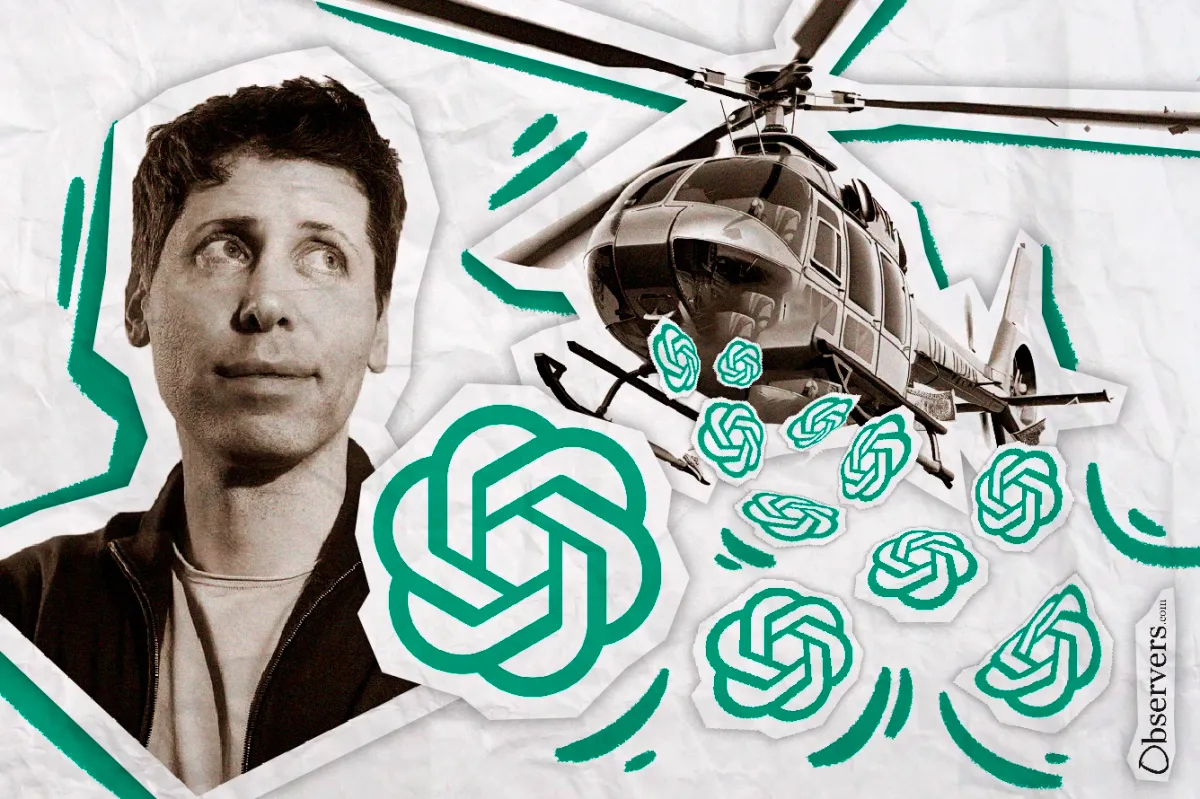
In an interview on the All-In Podcast on May 11, OpenAI CEO Sam Altman suggested an alternative approach to social welfare. Altman envisions a future where universal basic income (UBI) would not be distributed in traditional currency but rather in the form of access to powerful AI tools, like OpenAI's GPT-7 model.
Altman argues that rapid advancements in AI will completely reshape the socio-economic landscape. Like many others, he envisions a scenario where AI automates a significant portion of jobs currently handled by humans. While this presents a challenge in terms of potential unemployment, Altman believes it also creates an opportunity to harness the immense capabilities of AI models like GPT to empower individuals.
In Altman's vision, UBI would not simply provide a financial safety net. Instead, it would be about granting everyone access to this powerful AI infrastructure. This "slice of GPT" would essentially function as a digital toolkit, enabling individuals to amplify their abilities and become more efficient in their current roles, developing new skills for competing in the evolving job market.
Altman imagines an economy of people renting out their AI access, similar to the present-day renting of computing power. This could generate income and contribute to the broader economy. Alternatively, one could donate their AI resources to research projects, accelerating scientific progress in areas like healthcare and climate change.
"I wonder if the future looks something more like universal basic compute [UBC] than universal basic income and everybody gets a slice of GPT-7's compute, and they can use it, they can resell it, they can donate it to somebody to use for cancer research...."
The big lingering question is which tasks AI will automate and which jobs will remain in human hands. As AI becomes more accessible and its integration into the global economy becomes more prevalent, repetitive, data-driven tasks could be automated in favor of both a more efficient workforce and better work-life balance for individuals. Altman addressed the importance of cutting down GPT's latency and cost as a key step towards achieving that goal.
But what about the distribution and accessibility of this "UBAI"? Ensuring equal access to this resource would be crucial, or the proposal would simply exacerbate existing social inequalities.
It is not the first time Altman has suggested using AI to make UBS possible. In 2021, he published a lengthy blog post titled "Moore's Law for Everything," which suggests that a decade later, AI would be able to generate enough wealth to provide a UBS to every adult in the U.S. More specifically, he suggested that the technology will make goods and services cheaper to produce and distribute.
The idea of UBS (UBR) is not new. It is natural to assume that basic services and resources should be available to everyone at some level. However, its practical implementation is difficult first of all because of the subjective nature of the "basic" component in its definition. Sam Altman's proposals are revolutionary since AI-powered UBI or UBS has the potential to create a basic layer of necessities, adjusted for locations and circumstances, etc. However, allowing AI to solve this could lead to problems for humanity that are far worse than poverty.
On the fear of future AI threats, Altman proposes a global oversight body to regulate large AI projects while allowing startups more freedom to innovate. This approach balances potential risks with fostering continued AI development.
"I think there will come a time, in the not super distant future, where the frontier AI systems are capable of causing significant global harm. And, for those kinds of systems, I would like to see some sort of international agency that is looking at the most powerful systems and ensuring reasonable safety testing."
Worldcoin, a project by Altman's Tools for Humanity, is also aimed at counterweighting the potential disruptions of generative AI. It is a crypto project that distributes digital currency in exchange for verifying one's identity through iris scanning and has been gaining traction in areas with economic hardship. Worldcoin has also faced privacy concerns and temporary bans in several countries around the globe.
Meanwhile, AI technology is advancing at an enormous pace. In more recent developments, OpenAI has introduced GPT-4o, their most advanced model yet. Boasting huge improvements in processing speed and multimodal capabilities, the model is capable of real-time conversation response across text, voice, and live video. For instance, users can now use the new ChatGPT tools to translate and analyze pictures, going beyond just text-based interactions. GPT-4o is currently available to all ChatGPT users. At this pace, we are going to Observe the attestation of Sam Altman's vision sooner rather than later.

